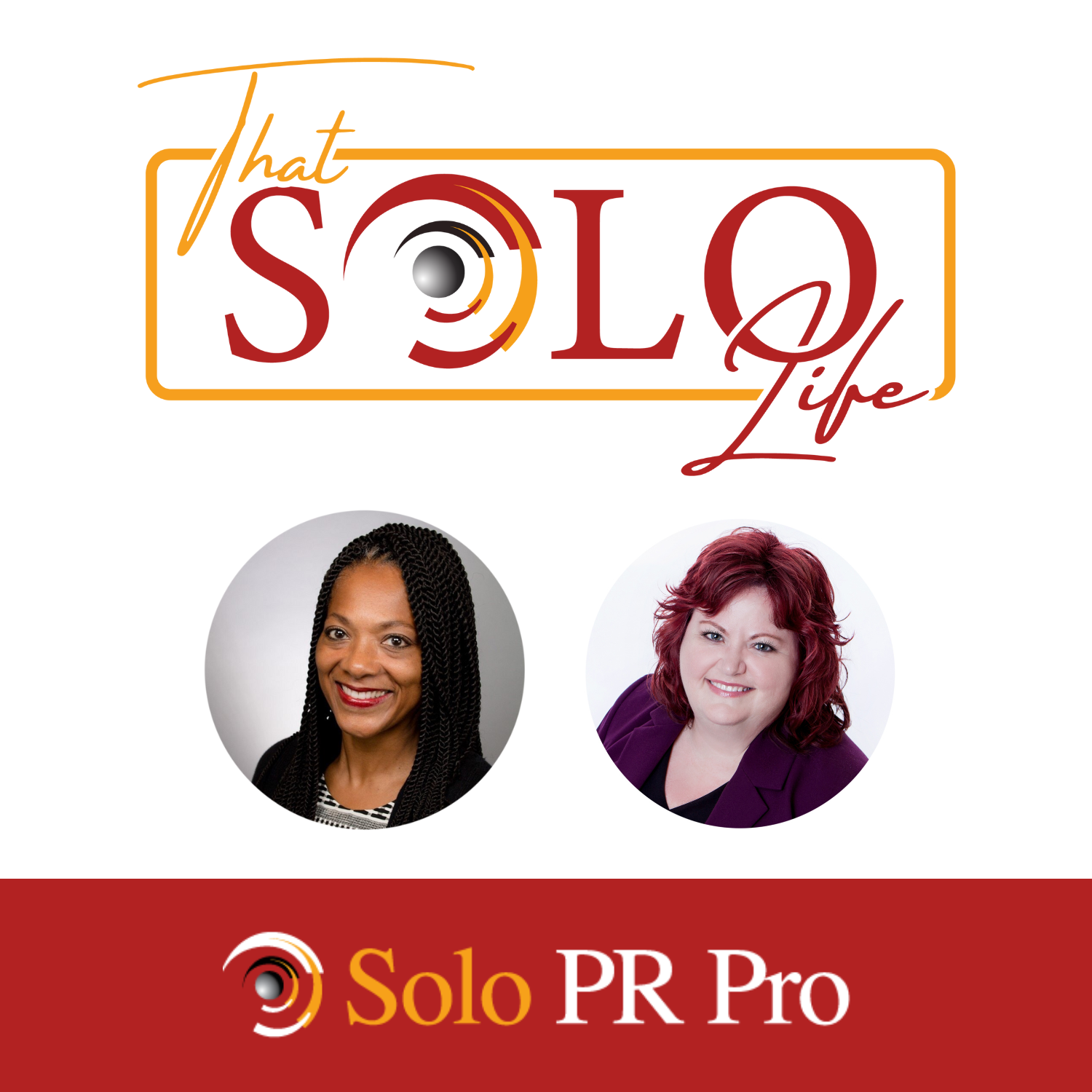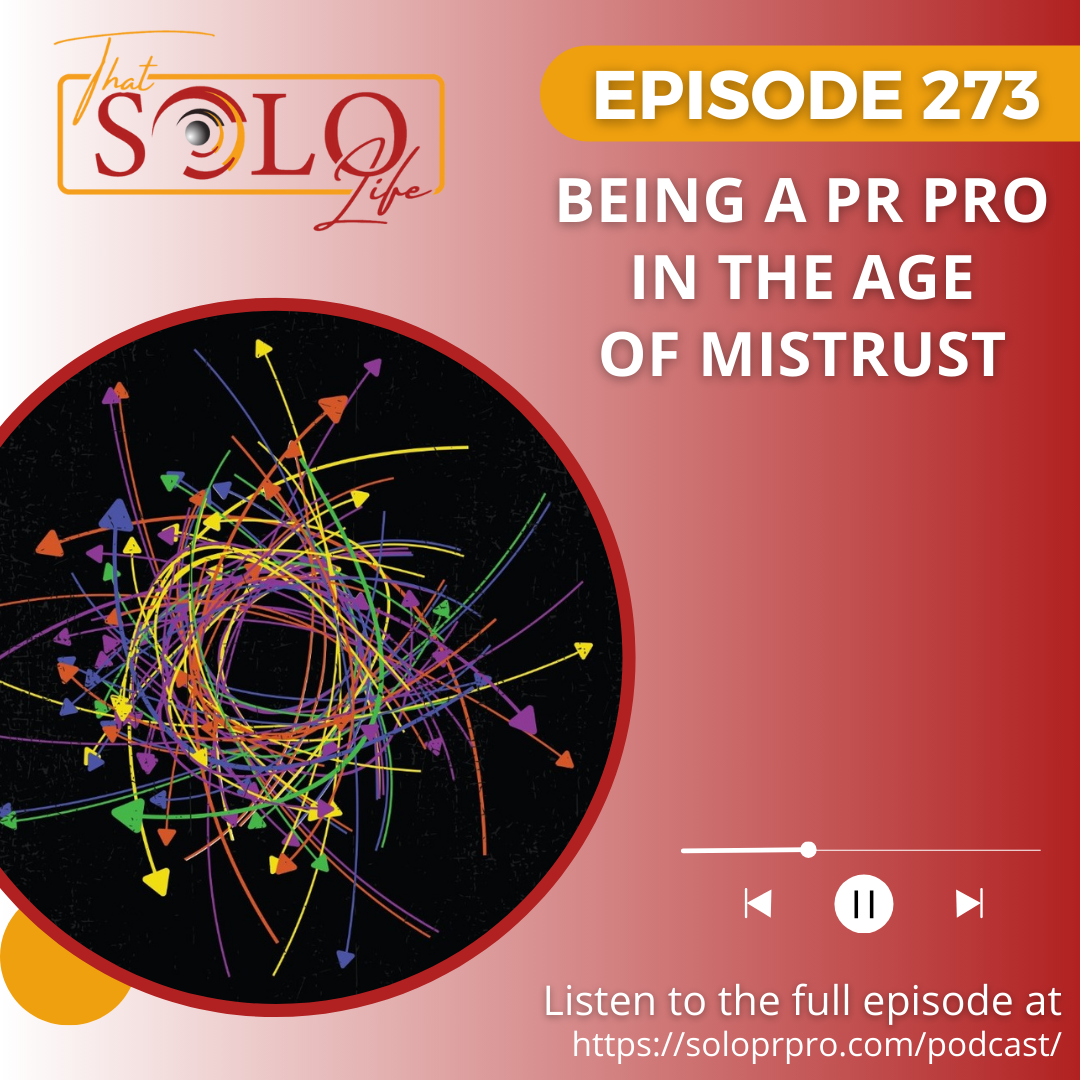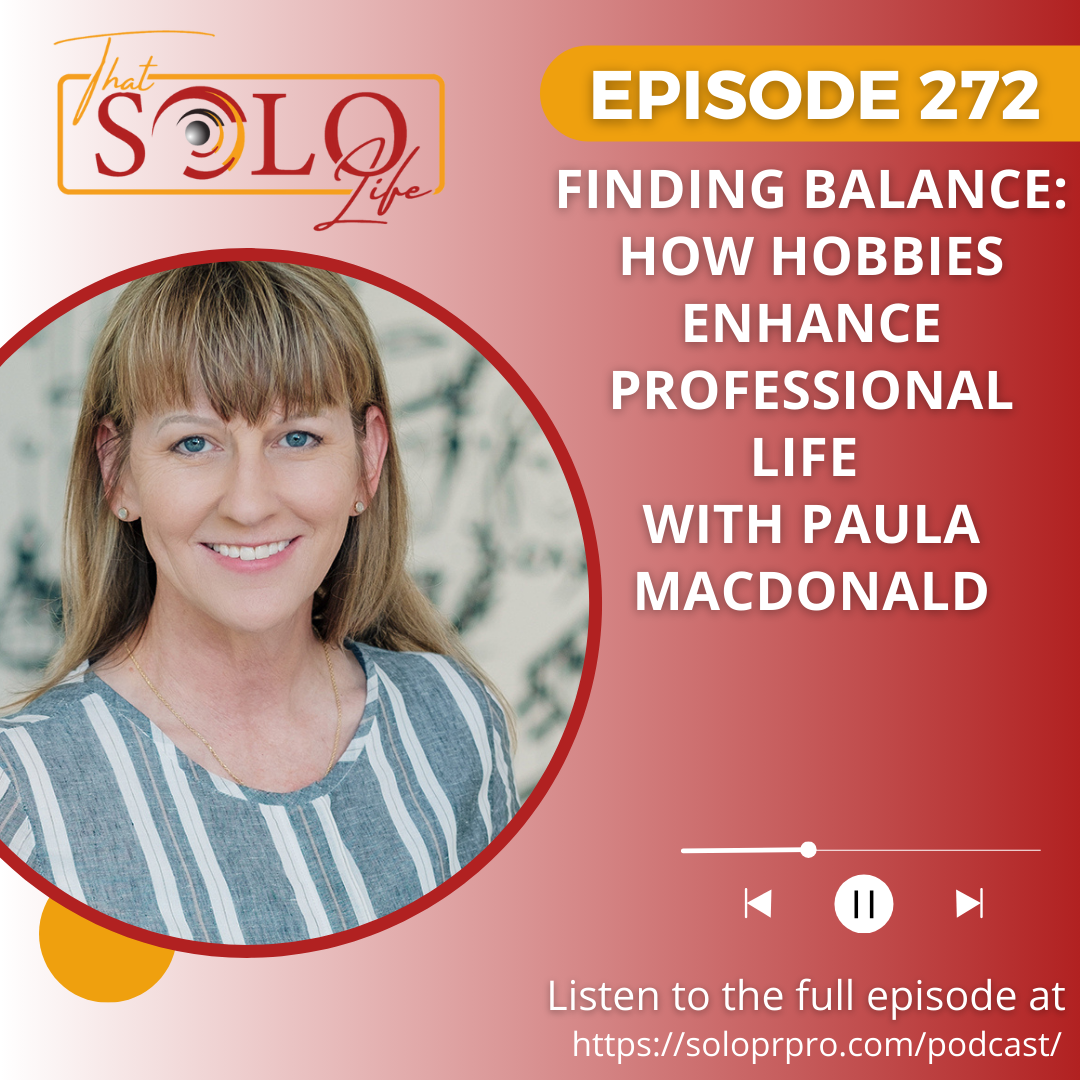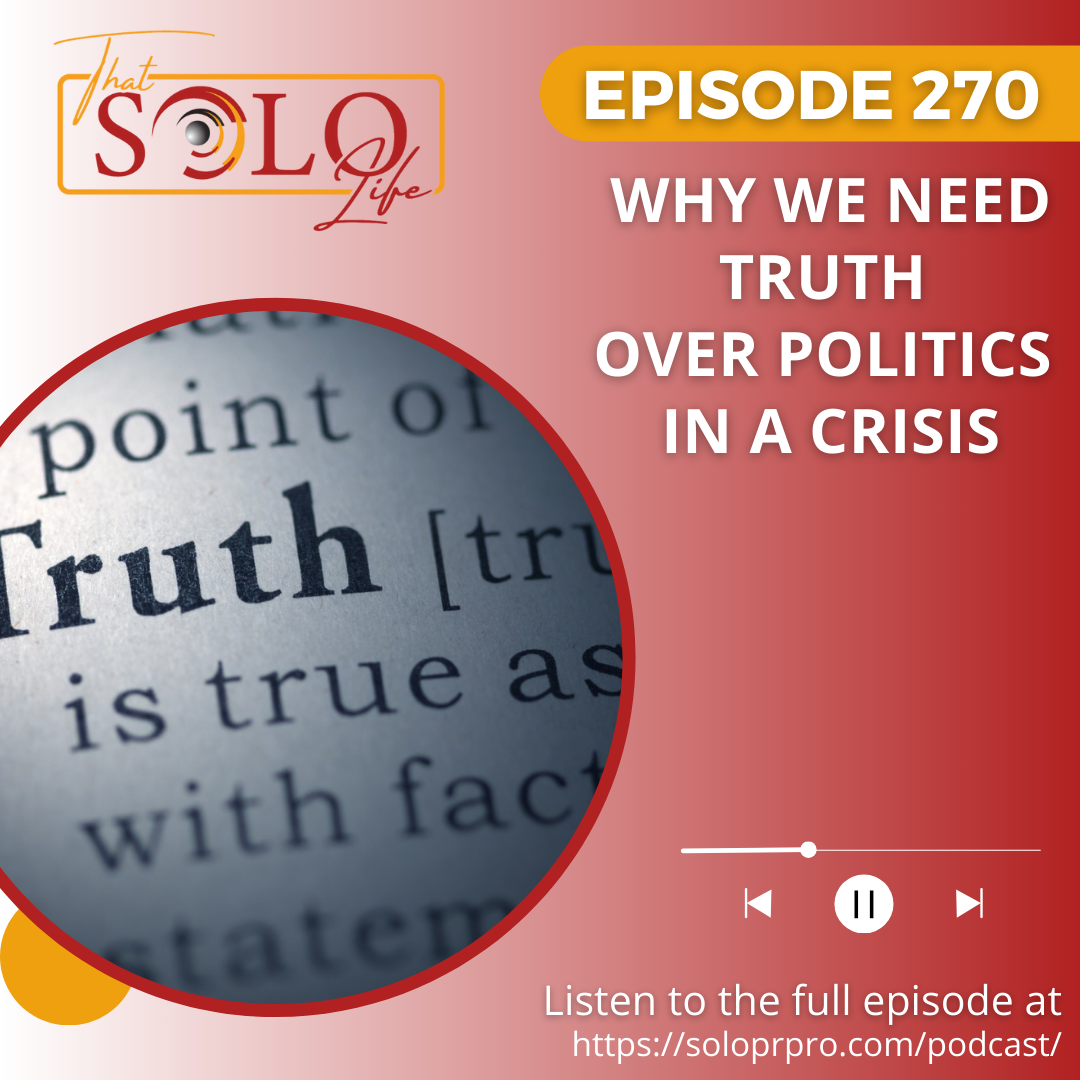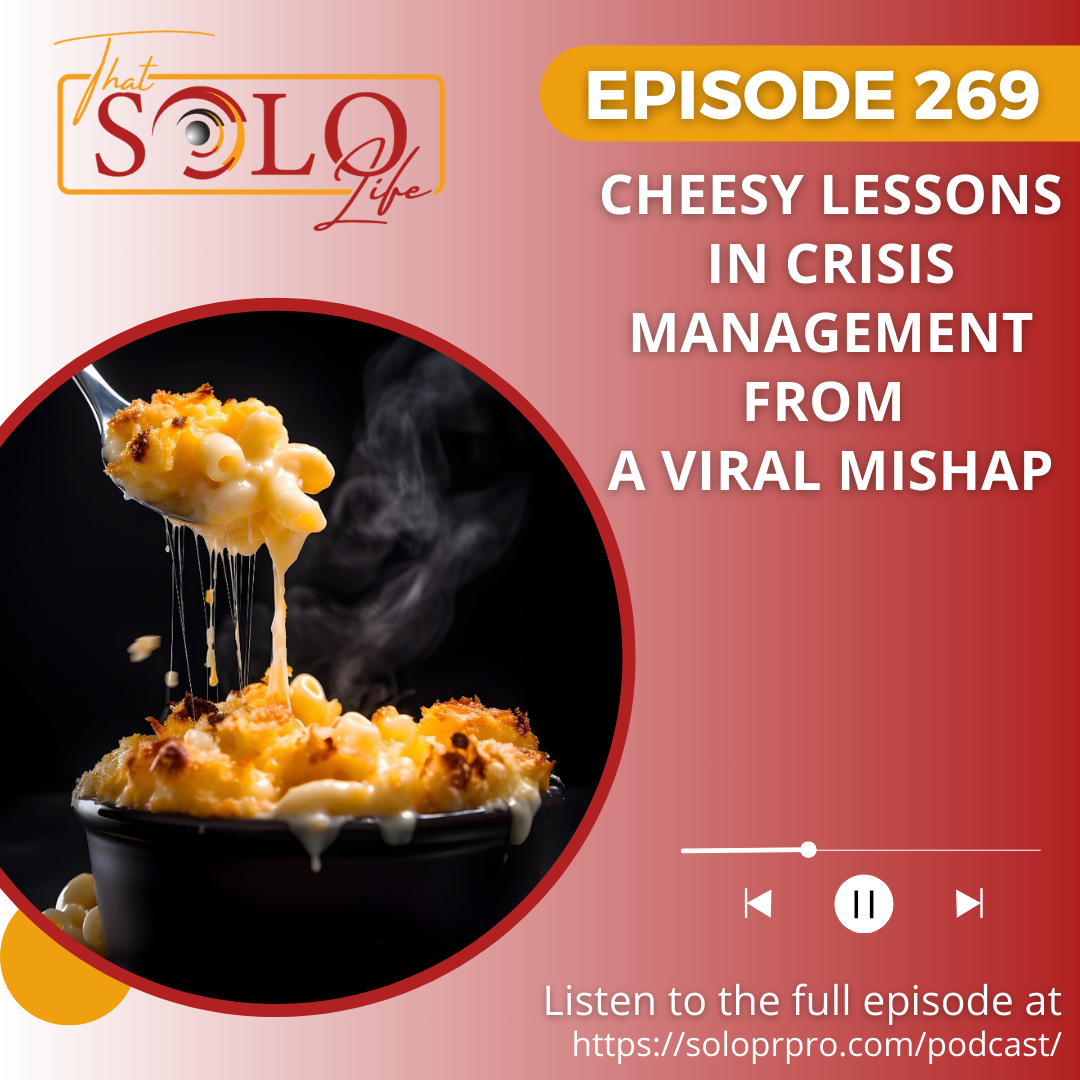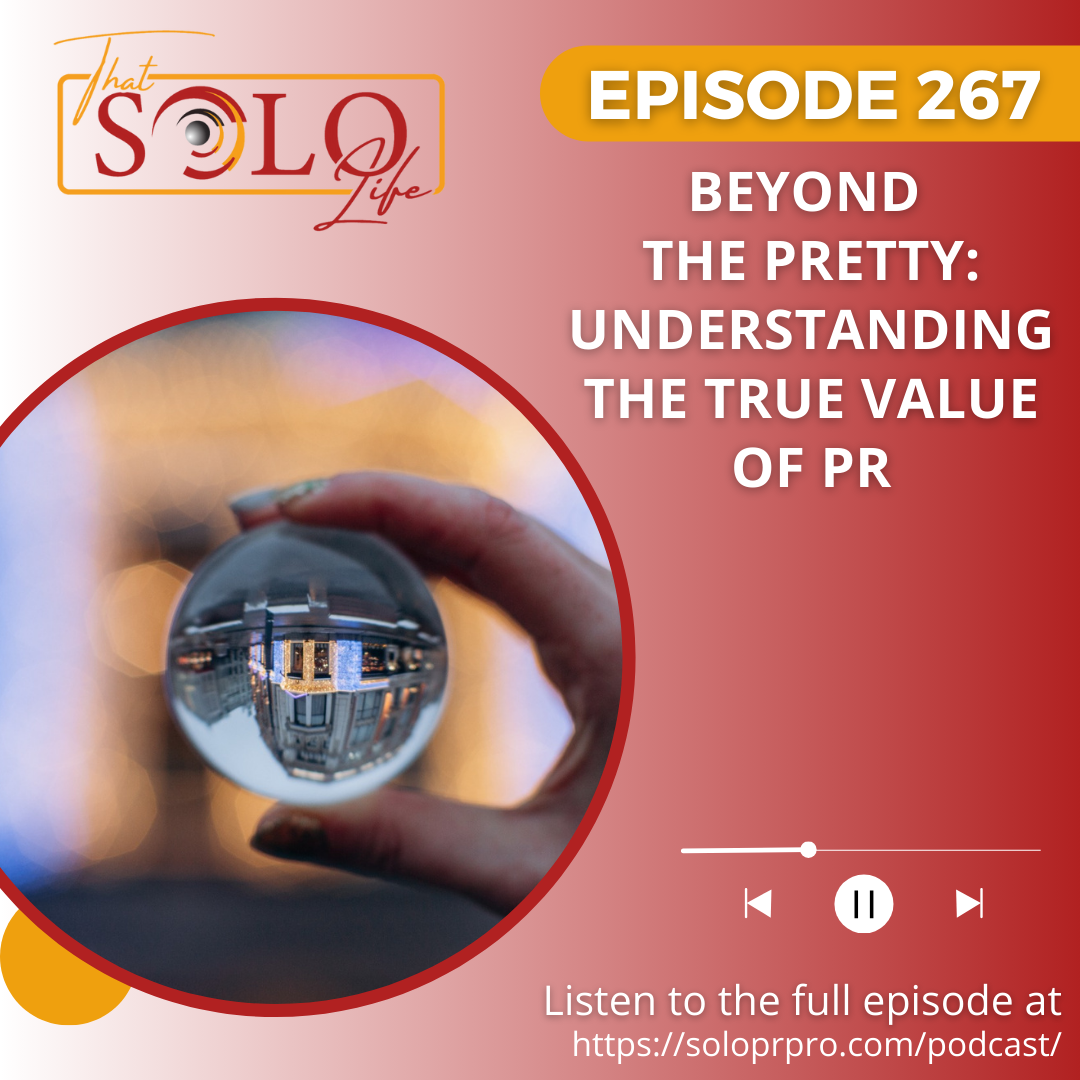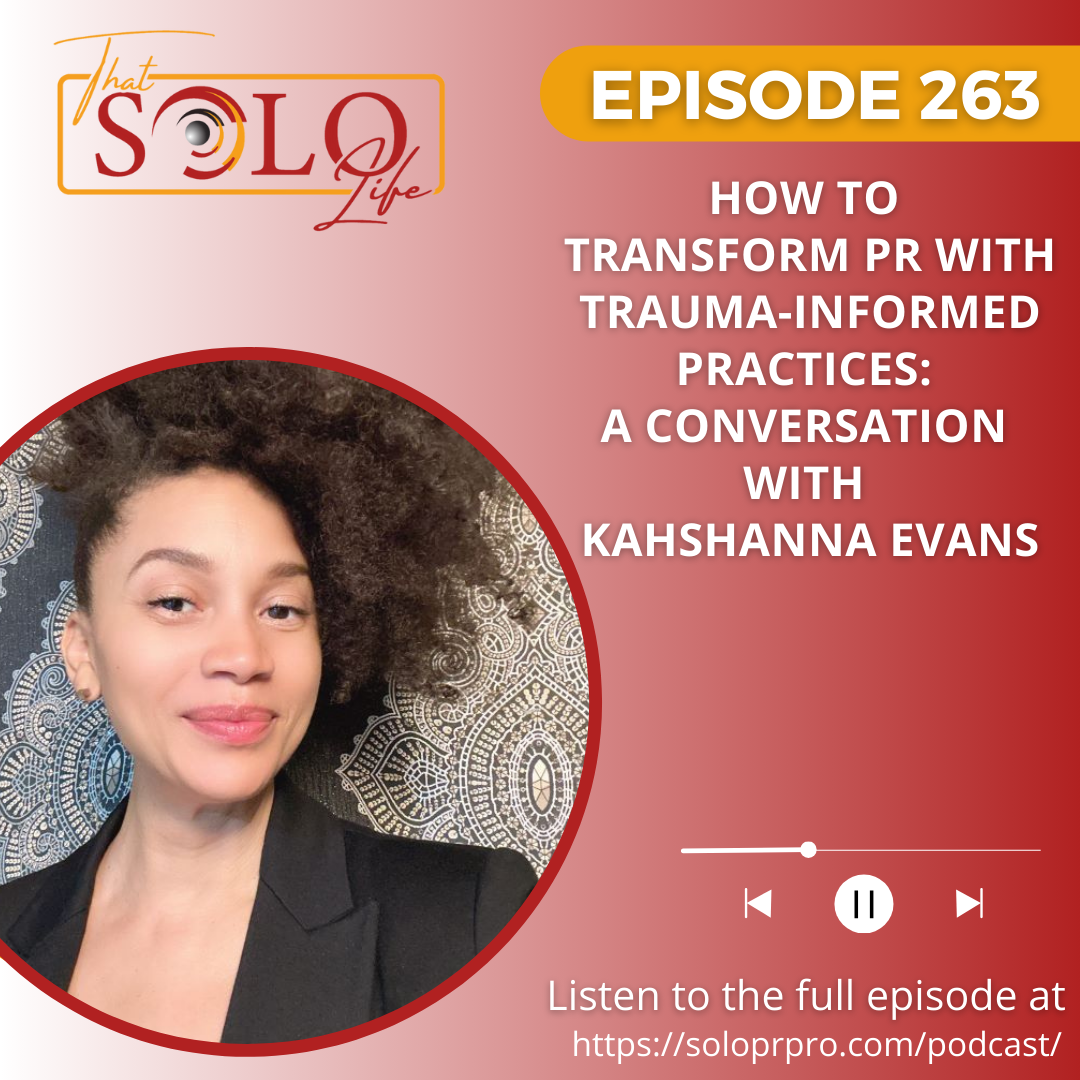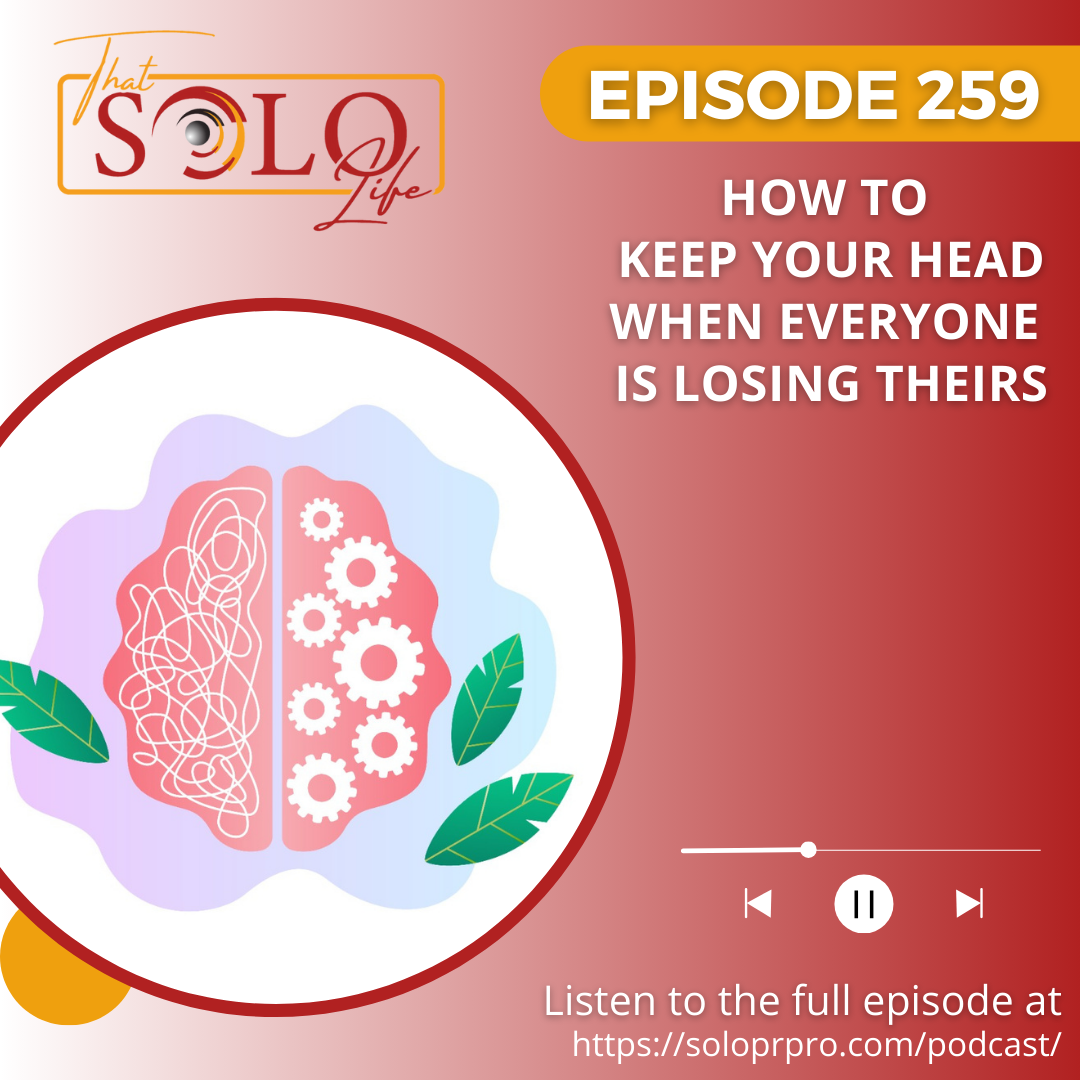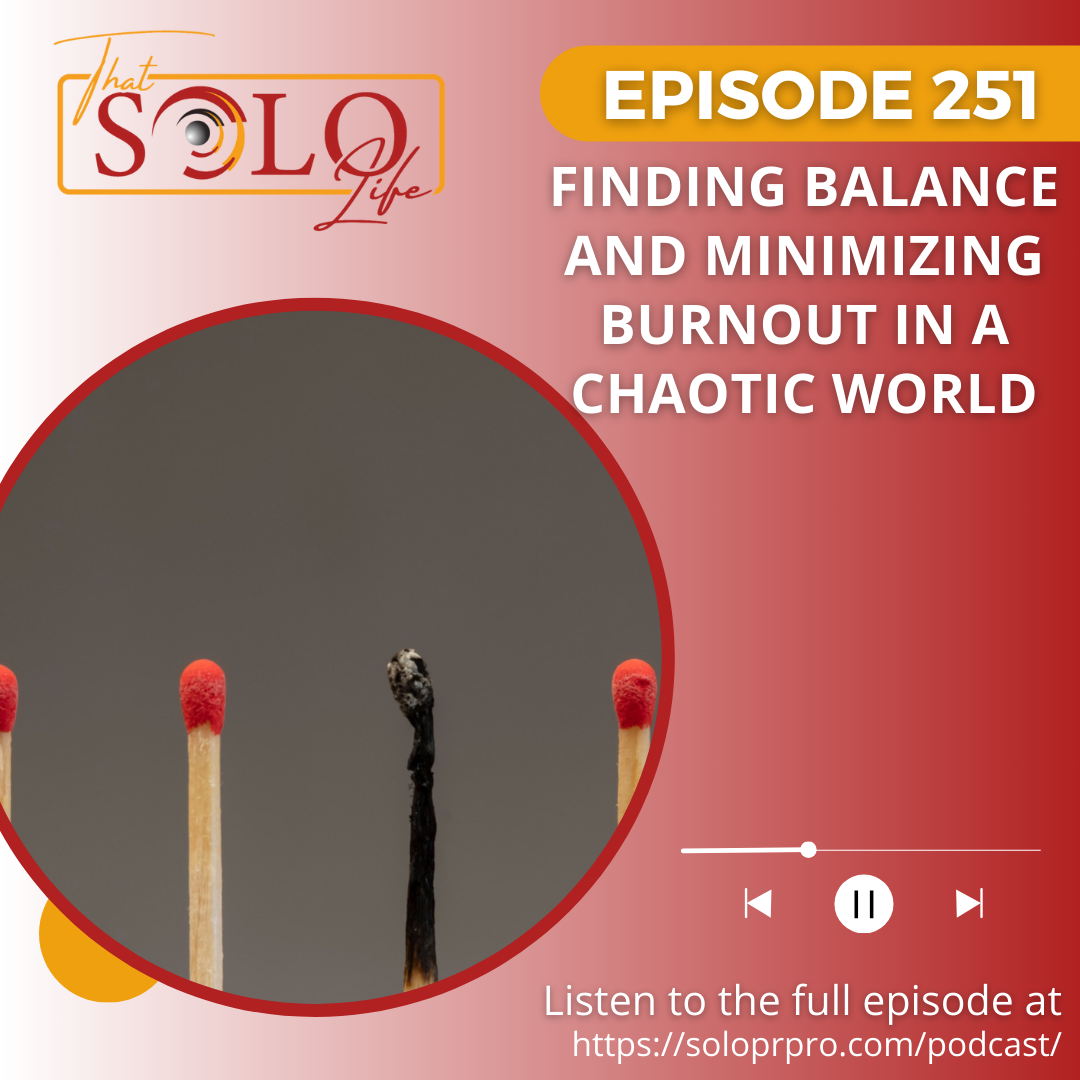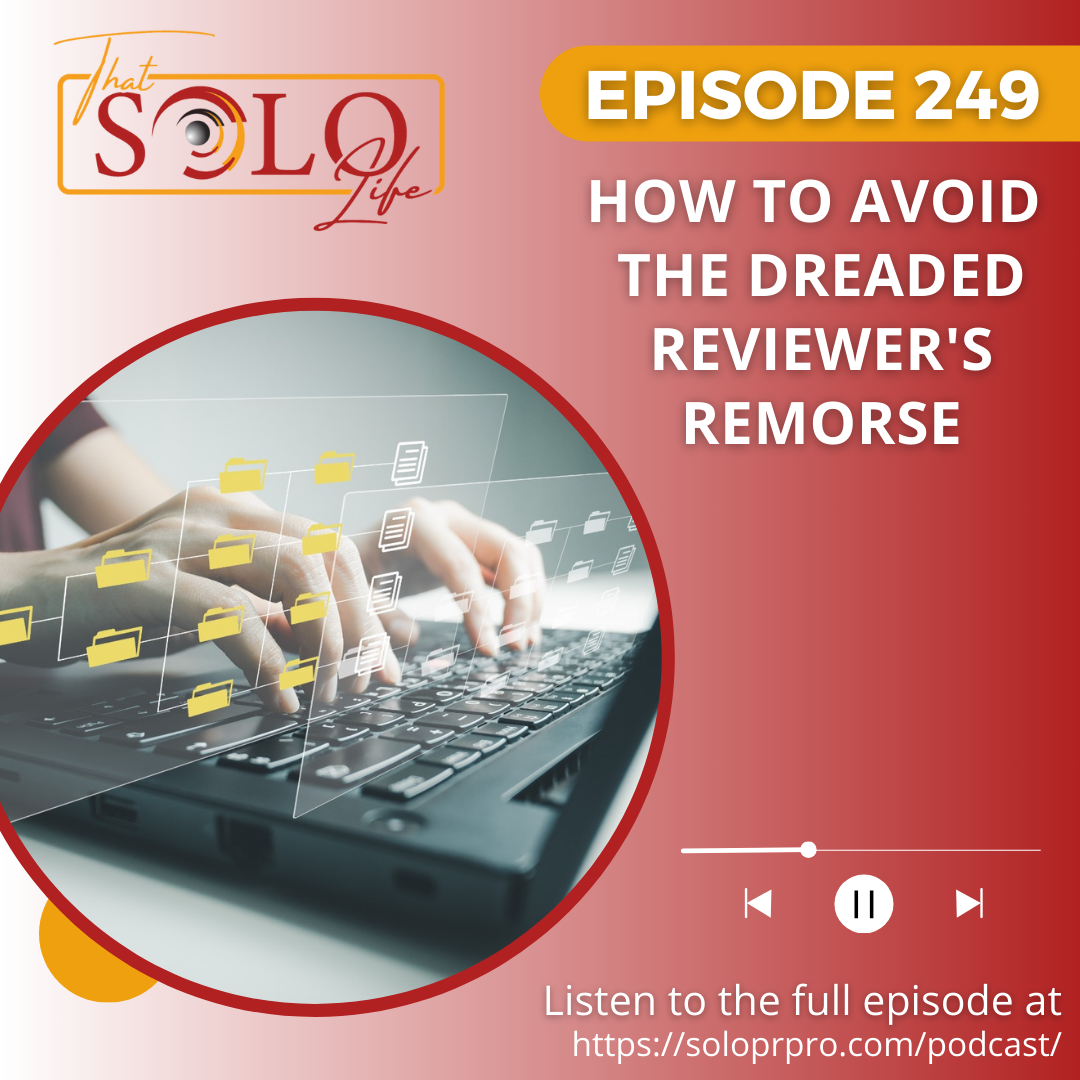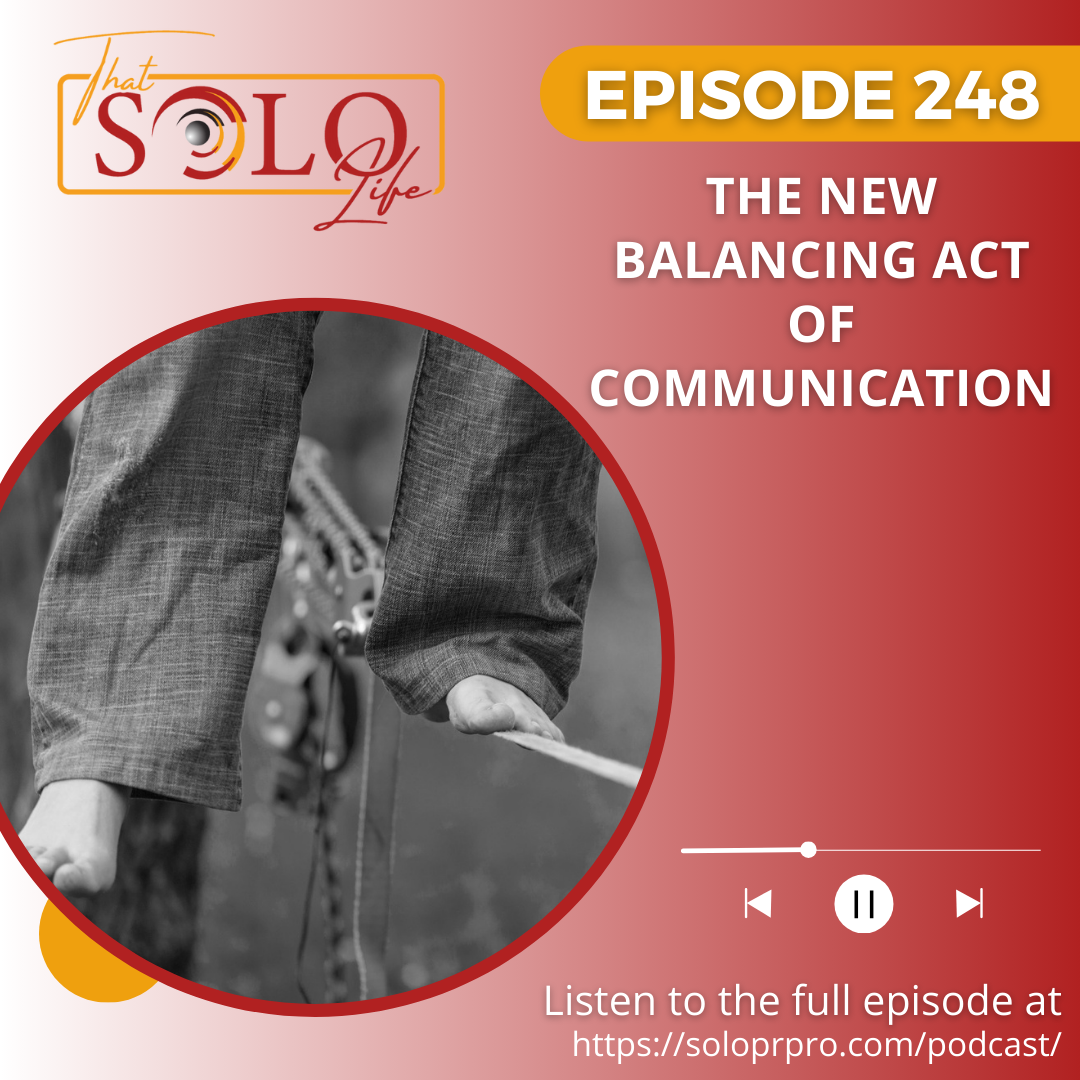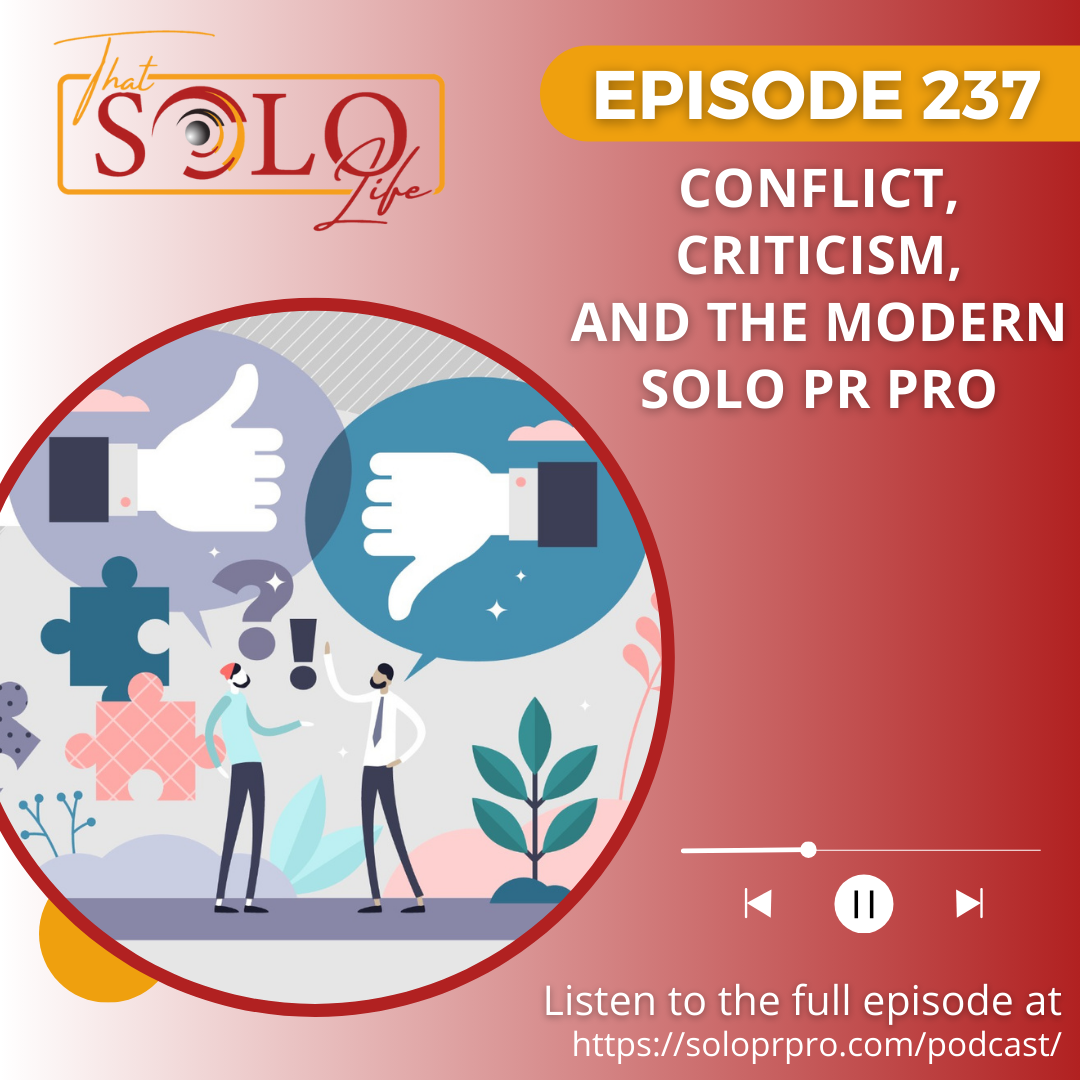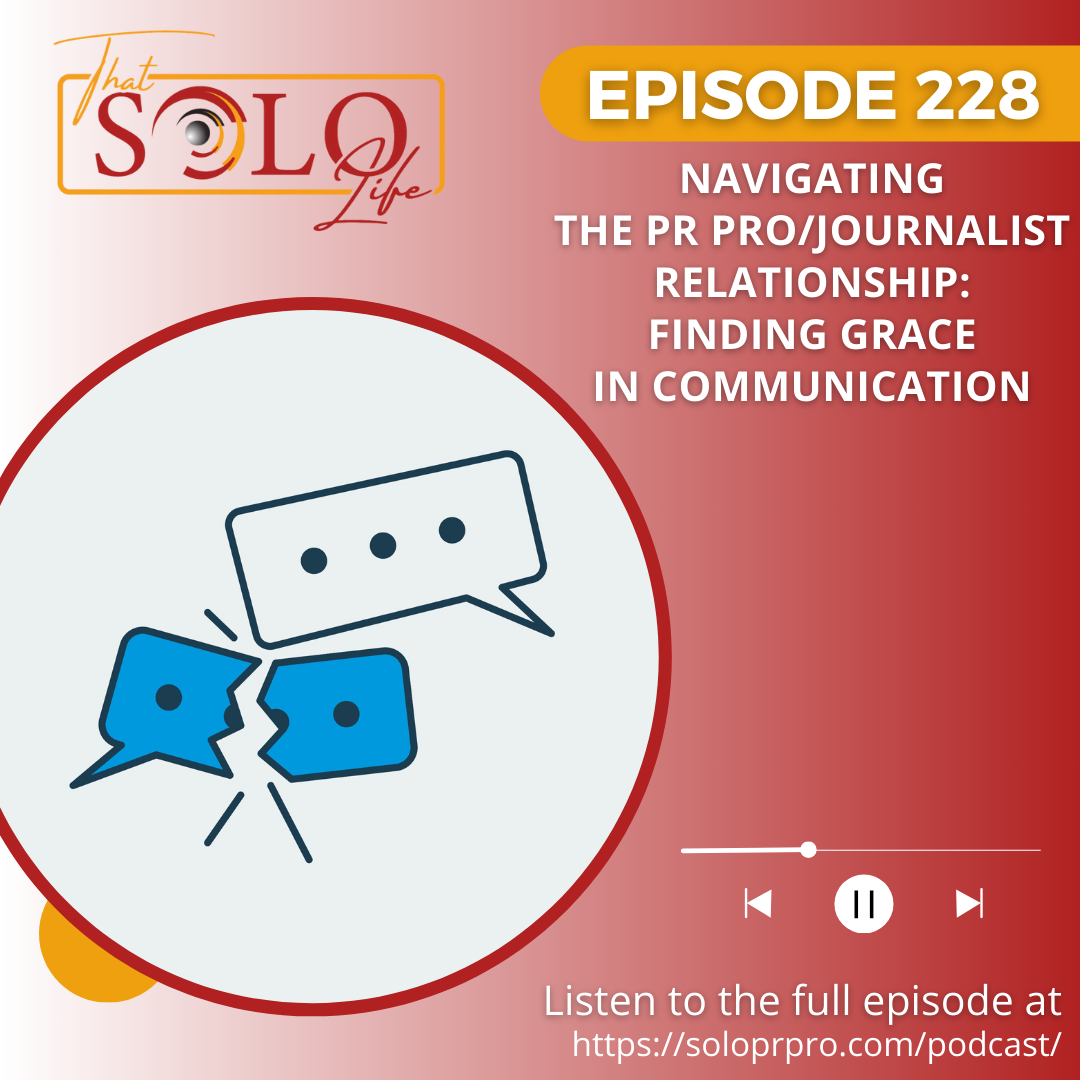The Hangover Episode: Oscar, Kate, and the Lost Hour
If you’re still feeling the effects of springing forward into daylight savings time, recovering from St. Patrick’s Day or are still wondering what is going on with the royals, in this episode we talk about it and how there’s a PR lesson in everything.
Special Offer for Solo PR Pros, Freelance Consultants, and Small business owners:
Lettuce is teaming up with Solo PR Pro to offer you a free, game-changing Business Assessment Program. Be one of the first 1,000 savvy PR pros to join.
Get News from Solo PR Pro:
Join our email list.
Transcript
Michelle Kane (00:03):
Thank you for joining us for this episode of That Solo Life, the podcast for PR pros and marketers who work for themselves, people like me, Michelle Kane with VoiceMatters, and Karen Swim of Solo PR Pro. Hey, Karen, how are you today?
Karen Swim, APR (00:17):
Hey, Michelle. How are you? I am, I wasn't drinking last night, but I was partying with my family. We threw my sister a big birthday bash, and so I have a party hangover.
Michelle Kane (00:31):
There we go.
Karen Swim, APR (00:32):
I'm not sure if you're seeing straight. I'm tired, but so happy. My voice just came back like an hour ago.
Michelle Kane (00:39):
Well, that was good. That was it. And for our listeners, this will hit March 18th, but we are recording this March 11, which is the day, also the day after the Oscar. So since that's my Super Bowl, I have an Oscar hangover. Not to mention, we all lost an hour this weekend to daylight savings, so we're all just kind of coming into this day going like, what? But we're here, so we're going to keep it a little light. We're dubbing this The Hangover Episode since, hey, not for nothing. It's going to be airing the day after St. Patrick's Day. So if you all do your due diligence, you'll be feeling like us when you hear this so,
Karen Swim, APR (01:19):
So true.
Michelle Kane (01:20):
We'll try and keep it a little quiet.
Karen Swim, APR (01:21):
Okay.
Michelle Kane (01:24):
But yeah, it was an interesting weekend, I have to say. And we're just really going to riff on some things that we have seen. Of course, the Oscars usually give you a lot of things to chew on. And during the Oscars as I was too, screening the event as I do, this weird thing came up with, in the UK it was Mother's Day, Mothering Sunday, and this weird thing came up with a photo that the Princess of Wales had posted with her kids, and four major – AP, Getty -- agencies issued a kill order for this photo, which apparently is not done very often. And due to it not being what they called a true photo, apparently there was some manipulation that caused concern. Now, I'm not going to wear a tinfoil hat today and get into the weeds of all the conspiracies of Catherine. Where is she? I mean, look, this is not Scientology and Shelly Miscavige. No, but it's just like you're already watching a major event and you're scrolling. What? Huh? And people are pointing out some Photoshop issues. And although to say AP is saying, look, we expect things like if you do some burning, you do some tone changes. Those are okay as if you're a comms pro. But I don't know, it was just weird. Another weird blip in our lives of where every day is like, huh?
Karen Swim, APR (02:54):
Yeah. What's interesting to me about the recall. And then she had to apologize. And so I think as communications professionals, we all know that we hire photographers for clients, for events, for headshots, and we edit the photos. I believe that we are all safely in the zone of what passes as ethical and truthful editing. Correct? Correct. You're editing out flaws, you're editing for a better resolution, but you're not changing the narrative or presenting something that may have been a previous photo as brand new. And we're starting, I feel like this leads into this whole new era where we are with AI being able to create things and to change things so easily. There's an AI tool for absolutely everything these days. And it's interesting to me that, especially in the UK, that the news agencies recall the photo when they, in my opinion, very routinely cross ethical boundaries when it comes to reporting on the royal family. So they don't cover things that are truthful. They have these backhand deals with the royal family, and the way that they operate is so far outside of what I would consider to be ethical. But you have a problem with a photo that was manipulated. Yeah.
(04:30):
Really, how ironic.
Michelle Kane (04:32):
That certainly adds to the weirdness of it all. But as you say, it does open us up to the broader concept of how AI is. I'll use the negative connotation of infiltrating. I mean, we've already had an AI-created robocall, allegedly from President Biden, to influence primary voters in certain states in a negative way. So we know to be on the lookout, but people who aren't in this field of work, they're not expecting it as much as we are. And it's really going to be, I'll say a bumpy ride, but we really all need to be vigilant about what we consume. Even silly stuff like Royal news.
Karen Swim, APR (05:25):
Yeah. Honestly, we are seeing more and more AI generated content, and it's not necessarily coming from our traditional news outlets where they're adhering to a standard of journalistic integrity. This is coming from other outlets and they're flat out taking articles from other outlets and just rewriting them in ai. And we're going to try to discuss this topic in depth and with some seriousness at a later time. But it's worth calling it out at this time that, again, as you, not it, Michelle, and this is really important to us as communicators. As communicators, while we can, we have a trained eye and we're looking for these things, and we understand how to tell human generated content from AI content that's not always clear to consumers of information. And it makes our jobs a lot harder because at one point, I think we were all battling the battle against social issues and political issues and fighting against mal and disinformation. He also knew that it could come for our clients. But today, it's easier than ever, as I said, with AI bots taking articles and resending them out. And that means your client's quotes could get manipulated. Information about your client can be used in a malicious way. It's very concerning. And I think, if I'm being honest, for myself personally, you feel like you're fighting it and it almost feels like playing a game of whack-a-mole that you're never going to win.
Michelle Kane (07:14):
Yeah. Yeah. I mean, it really amps up the reputation management portion of our work, whereas it's like, okay, keep my eye on Google reviews and things that people say and alerts, and now it's like, oh, okay. It's just a whole new sphere of potential influence that can harm clients. And again, I think vigilance is the word of the day is vigilance and just needing to try and stay ahead of this, but knowing that it is happening more and more is a definite good first step to that.
Karen Swim, APR (07:56):
True.
Michelle Kane (07:56):
So that's that. I'll be watching that silly story the rest of the day. I have a feeling it's just in case of, I dunno, they're tripping over themselves. I'm like, whatever.
Karen Swim, APR (08:05):
Well, we've had the photo things called out in the United States as well. There've been incidents with the Kardashians and their bad photo editing and fans have called it out on social media. Yeah, that's not your hand. That's not, and so photos, I would say, listen, the woman had surgery, apparently. Basically, she probably is not looking yet in her best self in a way that she wants to present to the public, but obviously we as PR people know, so just post a collage of old photos or post little from the past. There's so many ways that she could have managed this. She could have posted a photo to say, one of my favorite Mother's Day photos and post something that is not how you look right now in this moment and pretend that it's this year's Mother's Day photo. That was just dumb.
Michelle Kane (09:02):
That was dumb. There's so many different ways to play this. Take a picture of the pretty flowers that William should have bought. You
Karen Swim, APR (09:09):
Just photograph the
Michelle Kane (09:11):
That's true. Yeah.
Karen Swim, APR (09:12):
These are my loves. I mean, come on. There's just a million different ways to have handled that that would've been smarter than getting called out and then letting people spit out. Because even though I don't follow the royal family, I unfortunately cannot escape it when I'm reading news. And so I see these headlines about her being spotted and grainy photos, and I'm like, oh, for Pete's sake, it feels like she is a criminal. It's creepy.
Michelle Kane (09:46):
Well, one thing I did see, which I thought that's like a recipe for a hot mess this morning, saying that, and I guess I knew this on one level, again, it doesn't affect my day to day, but that each house, so to speak, has their own comms team independent of one another. So there really is no united fronts. So you've got the king and the, I can't say queen, the king and his wife have their press, and there's allegedly no uniform coordination. Yes.
Karen Swim, APR (10:21):
I think I had heard that in the
Michelle Kane (10:25):
They need to fix that. They need to fix that.
Karen Swim, APR (10:28):
Does that not speak to a lot of what happens in corporate America as well? There's no unified messaging or teams that people are disjointed. And when you have everyone operating on their own agenda, chaos rains. And so here's a lesson for brands out there, and I know that our solos have to work against these circumstances. In many instances, when you can't speak with a unified voice, you are going to have a problem at some point. And how it shows up can't, we can tell you some examples of how it shows up, but you will have a problem, not you might. You will for sure. Definitely. So it's a good lesson. You can't have that. You can't have everyone operating independently. And it's funny because now you also have the rise, or I should say it's firmly in our culture to have a personal brand. When you're an executive or when you're a rising manager and even just an employee of the company, people have their personal brands.
(11:32):
And sometimes when your brand has elevated enough, you have your own PR person or publicist. You might be writing a book and then you're pursuing your own interests, but you're leveraging your position in your company here too. There should be coordination because if you are a CEO of a company and you have your own PR team for your personal interests, you are still being seen as a representative of your company. So you need to loop in your company's PR team, and you all need to walk in a single step to ensure that you, in promoting your own brand, are not doing damage to the company brand.
Michelle Kane (12:14):
Yes. And so often the pushback that you get or the reaction that you receive is that, oh, you're just trying to control everything. It's like, well, yes and no. Yes. Within reason, because your paycheck is still signed by this entity that you are using, for lack of a better word, to raise your own profile. And yeah, we just need to know, I always say, I don't need to know everything, but I need to know everything. It doesn't mean I'm going to get into micromanage, but absolutely the united front, because that's something that certainly communicates. It could certainly harm your brand if your brand has to scurry after you. And even if it isn't a big mess to clean up, it just doesn't look, it makes the brand look like it doesn't know what it's doing, and that would instill doubt in their product or their service, and nobody wants that.
Karen Swim, APR (13:11):
I agree. Well, Michelle, you watched the Oscars.
Michelle Kane (13:16):
I did. It's my Super Bowl. And it's so funny that the infamous incident, I was sitting there watching this and that thing that happened last year, I thought, wow, was that just last year? It feels like 10 years ago.
Karen Swim, APR (13:30):
It does.
Michelle Kane (13:32):
So nothing like that happened. I don't think anything too crazy happened. At least it didn't register on my radar. It was a pretty mundane night. They ended relatively on time. There were some neat elements of the Hollywood community gathering, and I'm sure much of which were predetermined bits. It was fun to see interesting pairings like Arnold Schwarzenegger and Danny DeVito recreating their twins duo, and both of them having been Batman villains, calling out Michael Keaton in the audience for killing them both.
Karen Swim, APR (14:12):
That's fun.
Michelle Kane (14:12):
And they were going to have a talk at the after party, but the one thing that I really loved was the way they had the presentation of the four major acting awards. They pulled in five previous winners to do the presentation. And so each past winner got a nominee to speak to, and it was really neat. Sometimes there were some connections, and I thought, oh, you're making everyone cry before they even get up there. So that was kind of cool. Then of course, John Cena recreating the streak episode that David Nivan handled with such a plum in the seventies, but that was definitely a bit Jimmy Kimmel had coordinated. He was pretty good at coordinating some bits. So I would say it was relatively uneventful. Of course, I don't know. Anyone who knows me on social media knows that. I think I'm just Ken as an absolute banger of a song, and I get why the Nice song won. But Ryan Gosling brought it's, they did an incredible production number of, I am Just Complete with Mark Ronson, who was a co-writer slash from Roses, and of course Wolfgang Van Halen who was on the recording. So yeah, if you love movies, it was a good night. If you're a nerd like me that loves the history of it all, and oh, that's meaningful because X, Y, Z, it was a good night for you too. I hope so. That was fun.
Karen Swim, APR (15:40):
Well, I saw a couple pictures here and there, and of course I saw the fashion pictures, but you know what was interesting, the Essence Awards, which does not get far,
Michelle Kane (15:51):
No, it doesn't.
Karen Swim, APR (15:51):
Media attention was just a few days ago as well,
Michelle Kane (15:55):
Hit me up.
Karen Swim, APR (15:56):
These ladies brought the looks. They served looks that were incredible and fierce, and what an empowering time for women to come together to celebrate women. It was just, I wish that it got a lot more attention than it does, because this is not just a black woman event. It's just something that everyone can enjoy that you bring together this great talent and hearing from people who were in that room, just how it uplifts them and how everyone leaves feeling more creative and ready to achieve their dreams and fulfilled. And I will say, I don't know, I can't speak for men, but I know for women, period, when we get together and we celebrate one another, there is truly something special about that that leaves you on a high for a long time. We need more of
Michelle Kane (16:51):
That. That is so true. That is so true. And yeah, I don't like that. I have to trip over something like the essence of awards. Well, going through the remote, I love all of it. And what you said is so true because it's funny, I was messaging with a friend who is quite ensconced in her world right now, and she's like, oh, I'm not going to watch, and she's a creative, and I said, I think you really should watch, because people will slag off on award shows. Oh, it's just blah, blah, blah, and they just talk about themselves. I'm like, no, it's inspiring. It's soul food because these people, they share some of their story, many of them as they accept, and it's just a real touch point of Yeah, you're right. That's why we tell stories. That's why we do this. It's not just what are you wearing and who did what with who. It's important because so many of our films and our media are reflections of where we are, who we are, who we want to be, where we want to go. It has value within. Yeah,
Karen Swim, APR (17:56):
I totally appreciate that viewpoint. I've got a really good friend who is a writer and producer, and during the covid time, she encouraged people, even though everything was shut down to continue to write and create, because she saw it as their duty to chronicle history. And it's really such a beautiful thing, whether you're a comedian, whatever you do creatively, you are portraying the times. And even now we look back, we look at old films, we look at old paintings and sculptures, anything that was created in past times, and it gives us into a window, into the culture, into what was happening, the political scene, I'm sure that we'll look back. We look back at previous Oscars and we see the creatives that were unified around causes, we've seen them take stands about social justice and different things. This year, it was the war in Israel, and we see them take a stand, and I do think that you're right. It is important to sometimes, I know we PR people, we live in our world, we live in our industry, we live in the businesses of our clients. We live in the business world, but we should remember that the creative endeavors hold an important place as well, and they really do portray our history right now. So it's important to participate in that and to acknowledge that.
Michelle Kane (19:28):
Yeah, no, could not have said it any better myself. That is so true. So well, we hope this was a bit of a light touch for you today, and we thank you so much for taking the time to listen. If you did get value, please share it around, and of course, please check in with [email protected]. Check out what that amazing group of people has to offer and what Karen cooks up for us every week with new blog posts, new offerings. So make sure you sign up for the [email protected], and until next time, thanks for listening to That Solo Life.
 Sign in
Sign in Sign in
Sign in Sign in
Sign in